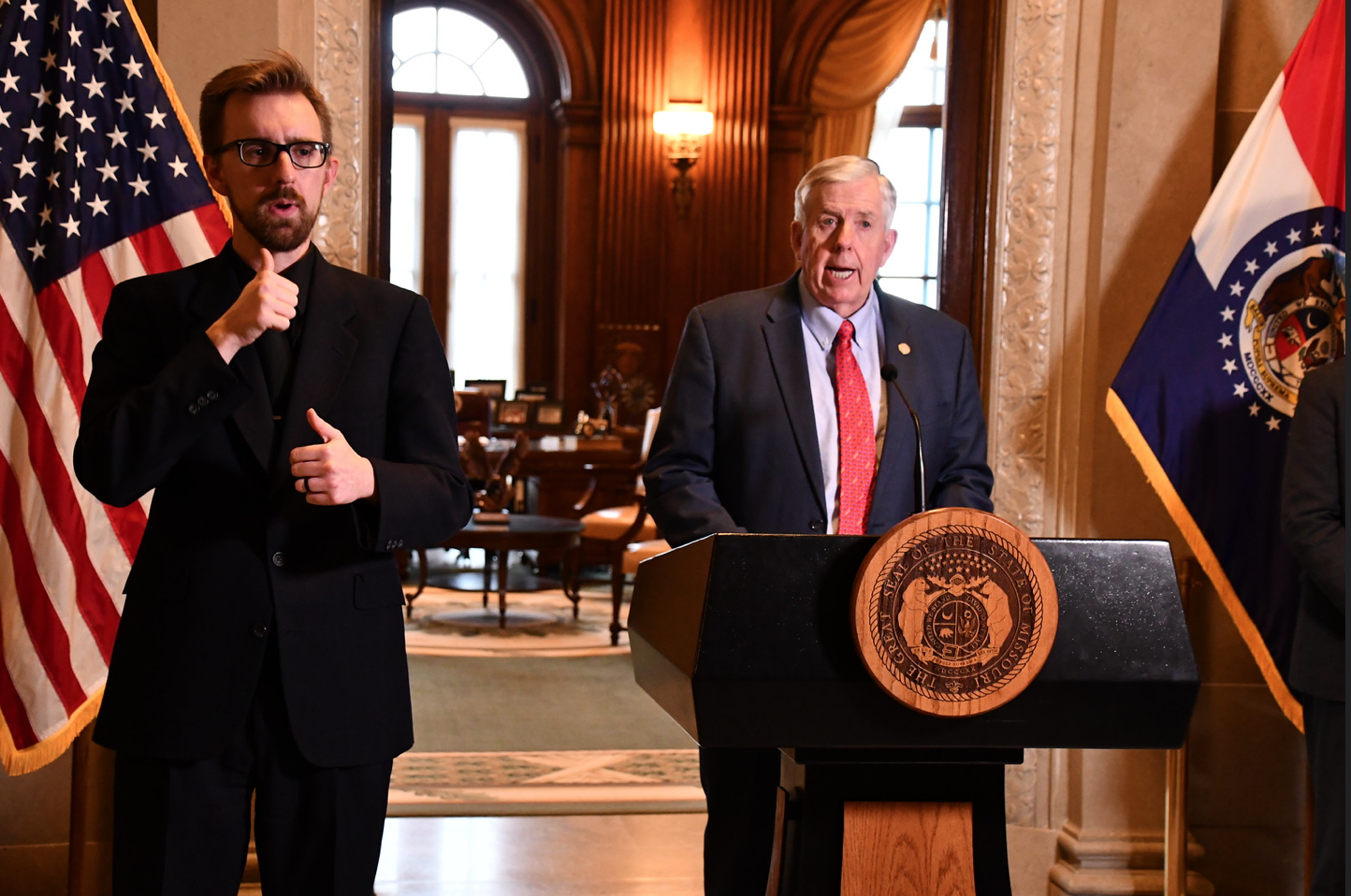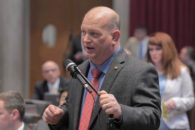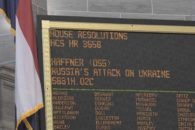The governor’s daily coronavirus briefing begins, and AJ Housewright is the first to step into the camera’s view. Clad in a dark suit and tie, he strides past the podium, positioning himself just to Gov. Mike Parson’s right.
And as Parson speaks, Housewright interprets in Sign Language.
This has been the cyclic pattern for the 27-year-old since the governor began giving routine updates on the state’s response to the global pandemic in mid-March. Parson’s guests of Missouri leaders rotate between briefings; Housewright, however, is a constant figure at the afternoon events.
Housewright began working for the Missouri Commission for the Deaf and Hard of Hearing (MCDHH) as a staff interpreter nearly three years ago and is often dispatched to interpret for the state government. A graduate of William Woods University in Fulton, Housewright said he decided to make a career of interpreting since he’s done it all his life. He’s what’s referred to as a CODA in the deaf community, Hosuewright explained: a child of deaf adults.
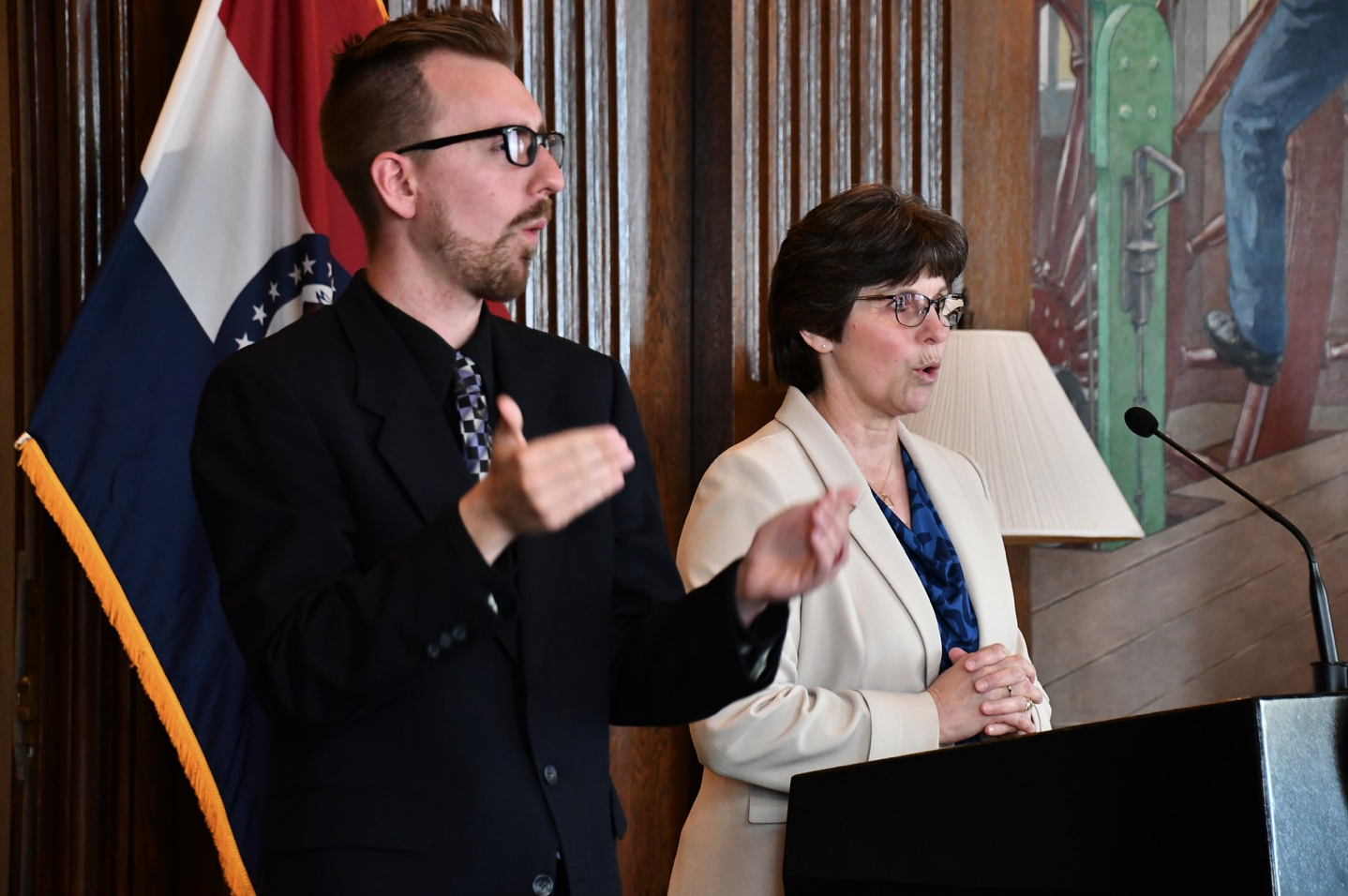
Although Housewright said he’s “been signing for forever,” he’s also keen on government. And with this job, Housewright married his two interests — and found himself propelled into a front-row seat of how Missouri’s chief executive has tackled the global pandemic.
“The different settings, the different people I’ve met across my career has been really cool,” Housewright told The Missouri Times.
Working so close to the governor has been daunting at times — after all, Housewright is a natural introvert lacking a proclivity for standing in front of cameras — but the St. Louis native said he’s grateful to see firsthand a different side of government.
“It’s interesting to see the human side of politics because oftentimes you’ll see how the news will spin it or how people talk about politicians, but it’s different getting to meet them and hear what their interests are and what they want to do for the state,” Housewright said. “That’s something that’s been pretty interesting with my career.”
Housewright’s dark wardrobe is no accident. It’s common among interpreters to wear clothes that contrast with their skin tones to make it easier for people to see their hands, he explained.
And despite how it may look, Housewright said his job as an interpreter can be mentally exhausting.
“People sometimes ask if I’m physically tired after ‘keeping up with how fast everyone talks,’ but I find myself mentally worn after a challenging assignment,” Housewright said. “Sign Language and English have different grammar structures, so I have to deconstruct what is said to find the concept behind the words and produce it in a visually friendly way — all in real-time.”
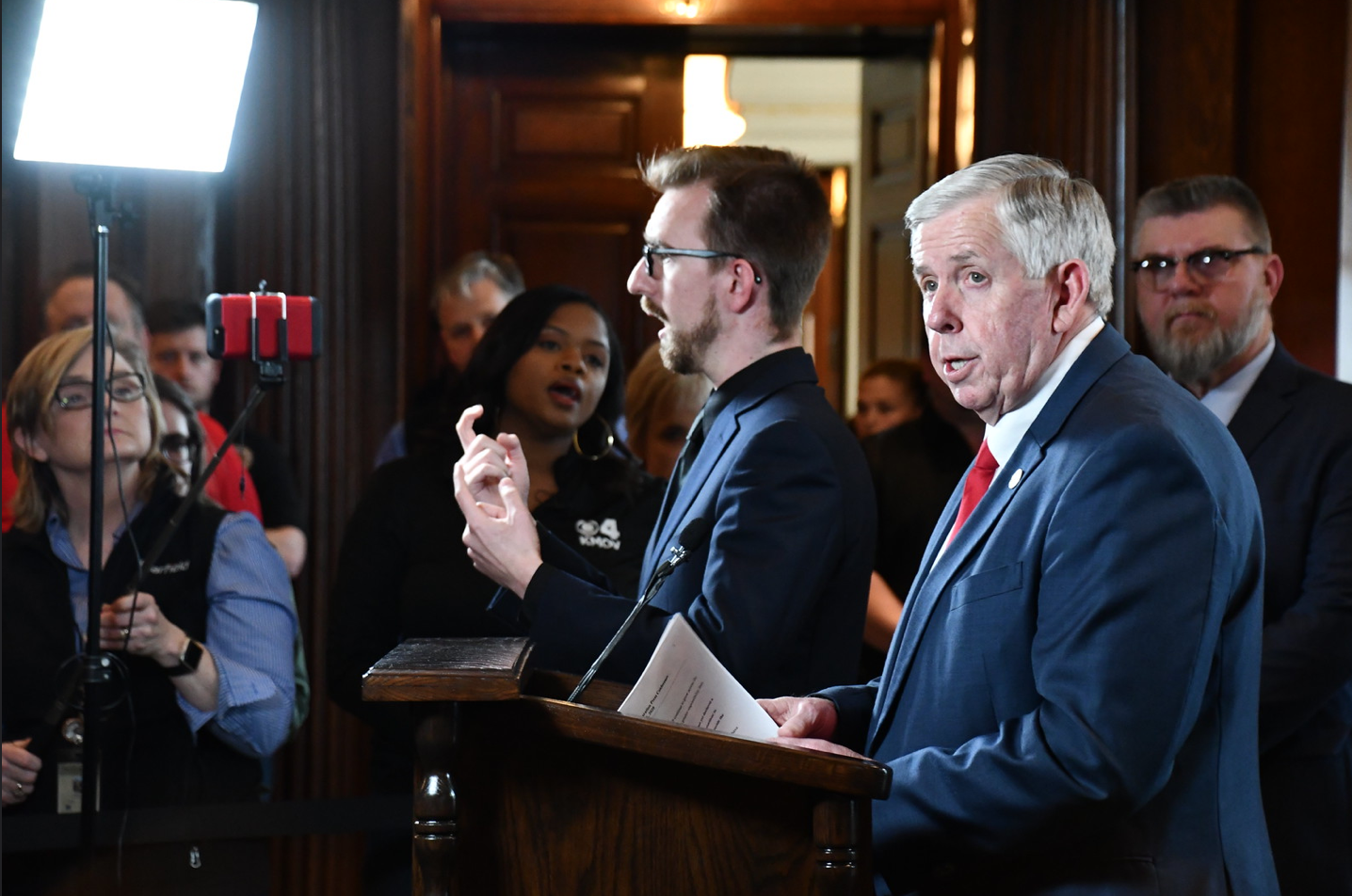
Even before he found himself at the literal forefront of the governor’s daily briefings, Housewright was no stranger to the Capitol. He’s covered State of the State addresses and worked in the statehouse with his boss as they monitored — or even testified on — legislation.
Housewright pointed to legislation Parson signed last summer establishing a statewide hearing aid distribution program with financial assistance for low-income individuals as one of the highlights of his career thus far.
“That was pretty cool to see the beginnings — the drafting of the bill, the concepts, the people saying this is a need we recognize in the community — and then going through and advocating for it at the state level, in the House and in the Senate, and finally to get to see the governor sign it and have the budget appropriated to it,” he said. “That was really cool to see.”
The legislature established the commission (then just the Missouri Commission for the Deaf) in 1988. Eventually, it was moved from the Missouri School for the Deaf in Fulton to Jefferson City where it would grow into its current moniker by 2002.
The MCDHH advocates for policies and programs to help those with hearing loss as well as provide services for individuals, businesses, organizations, state agencies, and more, according to its website.
EDITOR’S NOTE: For up-to-date information on coronavirus, check with the CDC and DHSS.

Kaitlyn Schallhorn was the editor in chief of The Missouri Times from 2020-2022. She joined the newspaper in early 2019 after working as a reporter for Fox News in New York City.
Throughout her career, Kaitlyn has covered political campaigns across the U.S., including the 2016 presidential election, and humanitarian aid efforts in Africa and the Middle East.
She is a native of Missouri who studied journalism at Winthrop University in South Carolina. She is also an alumna of the National Journalism Center in Washington, D.C.
Contact Kaitlyn at kaitlyn@themissouritimes.com.

